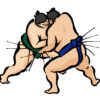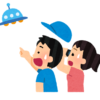What does warota / kusowarota mean? ワロタ?クソワロタ?

Did you encounter the word “warota(ワロタ、ワロタ)” when you reading comments at Japanese bulletin boards or SNSs?
“Walota” is often written in katakana.
It can be a full-width “ワロタ" or a half-width “ワロタ".
“Walota” originated from a famous Japanese bulletin board and now can be found anywhere on the Japanese Internet. There may be few young people who do not know that word.
Do you know what this means?
What does warota mean in Japanese?
There are several theories about the origin of “warota”.
The first one is that the word “warota” was changed by users on SNSs like “waratta”, “warata” and then “warota”.
Another one is that there is a word in the Kansai region, which has the same meaning as “warota”. It is said the word in the area “waroute mouta(わろうて もうた) I just laughed even though I did not intend to” was simplified to become “warota”.
Today many TV celebrities from the region speak Kansai dialects and many Japanese can understand most Kansai dialects. So it is easy for them to know what “warota” means anyway.
Japanese Internet users are not particularly concerned about where “warota” came from. They seem to simply use it either as a net slang or as the Kansai dialect.
The “warota” explained in this article is the net slang, but the Kansai one.
“Warota" is normally used when someone wants to say “I laughed" or someone laughed unintentionally. It is also used when laughing with a surprise.
Along with the words, the net slang “w” is often added.
It has a positive meaning for the other users and is rarely used in a negative sense.
”Wara (described later" has been used in “2 Channel (now 5 Channel)” which is one of the biggest SNSs in Japan, which means also “I laughed" but it includes the meaning of deriding. Then, the users wanted to use words to express a positive feeling for the other users. At the beginning they simply write “waratta(笑った、ワラッタ: I laughed" or the like. But, it is 2 Channel’s nature, the users started to change those words into like “warata(ワラタ、ワラタ)" and “warota(ワロタ、ワロタ)".
This will keep changing in the future.
What does “kusowarota" mean?
There is also a similar net slang called “kuso warota(くそわろた:クソワロタ)”.
This means “I laughed a lot”.
“Kuso(くそ)” is an expression frequently used by young people or men, and it literally translates “shit”.
Japanese people use “kuso” at the beginning of a word to mean “very”, “seriously” or something similar.
Not only the slang like “kuso warota”, but it is also used in ordinary conversations like “kuso omoshiori(くそ面白い、くそおもしろい、very funny)”, “kuso majime(くそ真面目、くそまじめ、overly serious、humorless)”, “kusodikara(くそ力、くそぢから、 prodigious or enormous strength").
“Kuso warota” is a combination of these two words.
It is often written in half-width of katakana(クソワロタ), or written like “kusso warota www(クッソワロタwww)” which has a stronger meaning.
It is like “LOL” and “ROFL” in English.
Tera warosu, giga warosu・・・
A net slang called “warosu(ワロス、ワロス)” also appeared.
“Warota” means “laughed”, whereas “warosu” means “laughable".
It is said that the meaning is supposed to be slightly different, but it seems to be often used as the same meaning.
“Warosu” has a different way of saying depending on how interesting it is.
“Warosu” < “Giga warosu(ギガワロス)” < “Tera warosu(テラワロス)”
“Su(ス)"' of “warosu” doesn’t have a particular meaning. There was a trend in which the users liked to put “su" to at the end of many words in 2 Channel, like “kawayusu(カワユス:cute)” or “yabasu(ヤバス:stylish, cool, danger, etc)”.
In any case, because they are only slang and are rarely used in daily conversation even though they are frequently used on SNS.
Hai hai warosu?
You might see a comment like,
“Hai hai warosu warosu”.
(はいはいワロス)
This means,
“OK, OK, that was funny.”
Generally, it is often written only as “warosu”, but when it is written as “ワロスwwww”, it is said to mean “very funny”.
バロス(barosu), 藁(wara), 草(kusa), w
Recently, in addition to “warosu”, there have been more words emerged.
“バロス(Barosu)” (= burst out laughing)
“ワラ(wara)”
“藁(wara)”
“草(kusa)”
“w”
“Barosu” has come from “warosu”.
It contains the meaning “Bakushou(爆笑:Burst out laughing)”, and the strength of laugh is similar to “kuso warota”.
“ワラ(wara)” is often written in kanji (藁) or katakana, an omitted form of “waratta(笑った:laughed)“, “waraeru(笑える:laughable)” or the like.
(Warai、わらい、ワライ、笑い、laugh)
Actually, the kanji “藁 (wara)” means “straw”.
Why straw?
Since the pronunciation of straw in Japanese is “wara” the same sound of that of “waratta" or “waraeru".
I know it sounds a bit strange to somebody who doesn’t know much Japanese.
In addition, when writing “warai(わらい:笑い)” in Romaji is “warai”. The net users just started using “w" of it to express “warota" which was quite quicker to type!
Also, while “w” started being used by many people, some wanted to express that “they seriously laughed" with “wwwww (doesn’t matter the number of w)”.
Of course, such expressions further evolved.
The expression “wwwww" looked like a picture of grasses to some people, and then they started writing a kanji “草 (kusa : grasses)”.
Next, someone else started writing the phrase “大草原 (dai sougen : prairie) instead of writing “wwwww”.
Interestingly, Japanese Internet users enjoy not only figuring out the meaning of such words that appear one after another but also quickly understanding and reading them. It is a kind of play.















